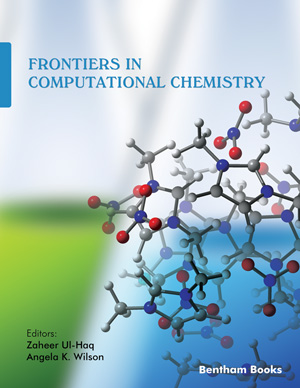Abstract
To improve the drug delivery efficiency on target cells, many strategies have been developed including Mesenchymal Stromal Cells (MSCs) approaches. In a previous study, we found that bone-marrow-derived MSCs (BM-MSCs) were able to incorporate and release the anti-tumor and anti-angiogenic drug, Paclitaxel (PTX). In this study, we evaluated the stability of PTX in standard cell culture conditions by analyzing the metabolites produced by MSCs after their incorporation of the drug. We are able to show that MSCs do not release either 3-OH-PTX or 6-OH-PTX metabolites (having a lower anticancer activity) but release an active PTX molecule together with the isomer 7-Epitaxol, is known to maintain the whole biological activity. This confirms that the simple procedure of MSCs priming with a drug (without any genetic cell manipulation), in our case PTX, does not modify the activity of the molecule and provides a new biological-device to carry and deliver PTX in tumor sites, by contributing to improve drug efficacy and target selectivity in cancer therapy.
Keywords: Anti-tumor activity, cancer, drug delivery, mesenchymal stromal cell, paclitaxel.
Anti-Cancer Agents in Medicinal Chemistry
Title:Mesenchymal Stromal Cells Uptake and Release Paclitaxel without Reducing its Anticancer Activity
Volume: 15 Issue: 3
Author(s): Massimo Mariotti, Renato Colognato, Marco Rimoldi, Manuela Rizzetto, Francesca Sisto, Valentina Cocce, Arianna Bonomi, Eugenio Parati, Giulio Alessandri, Renzo Bagnati and Augusto Pessina
Affiliation:
Keywords: Anti-tumor activity, cancer, drug delivery, mesenchymal stromal cell, paclitaxel.
Abstract: To improve the drug delivery efficiency on target cells, many strategies have been developed including Mesenchymal Stromal Cells (MSCs) approaches. In a previous study, we found that bone-marrow-derived MSCs (BM-MSCs) were able to incorporate and release the anti-tumor and anti-angiogenic drug, Paclitaxel (PTX). In this study, we evaluated the stability of PTX in standard cell culture conditions by analyzing the metabolites produced by MSCs after their incorporation of the drug. We are able to show that MSCs do not release either 3-OH-PTX or 6-OH-PTX metabolites (having a lower anticancer activity) but release an active PTX molecule together with the isomer 7-Epitaxol, is known to maintain the whole biological activity. This confirms that the simple procedure of MSCs priming with a drug (without any genetic cell manipulation), in our case PTX, does not modify the activity of the molecule and provides a new biological-device to carry and deliver PTX in tumor sites, by contributing to improve drug efficacy and target selectivity in cancer therapy.
Export Options
About this article
Cite this article as:
Mariotti Massimo, Colognato Renato, Rimoldi Marco, Rizzetto Manuela, Sisto Francesca, Cocce Valentina, Bonomi Arianna, Parati Eugenio, Alessandri Giulio, Bagnati Renzo and Pessina Augusto, Mesenchymal Stromal Cells Uptake and Release Paclitaxel without Reducing its Anticancer Activity, Anti-Cancer Agents in Medicinal Chemistry 2015; 15 (3) . https://dx.doi.org/10.2174/1871520614666140618113441
| DOI https://dx.doi.org/10.2174/1871520614666140618113441 |
Print ISSN 1871-5206 |
| Publisher Name Bentham Science Publisher |
Online ISSN 1875-5992 |
Call for Papers in Thematic Issues
Induction of cell death in cancer cells by modulating telomerase activity using small molecule drugs
Telomeres are distinctive but short stretches present at the corners of chromosomes and aid in stabilizing chromosomal makeup. Resynthesis of telomeres supported by the activity of reverse transcriptase ribonucleoprotein complex telomerase. There is no any telomerase activity in human somatic cells, but the stem cells and germ cells undergone telomerase ...read more
Role of natural compounds as anti anti-cancer agents
Cancer is considered the leading cause of worldwide mortality, accounting for nearly 10 million deaths in 2022. Cancer outcome can be improved through an appropriate screening and early detection and through an efficient clinical treatment. Chemotherapy remains an important approach in treatment o f several types of cancers, even though ...read more
Signaling and enzymatic modulators in cancer treatment
Cancer accounts for nearly 10 million deaths in 2022 and is considered the leading cause of worldwide mortality. Cancer outcome can be improved through an appropriate screening and early detection and through an efficient clinical treatment. Chemotherapy, radiotherapy and surgery are the most important approach for the treatment of several ...read more
 41
41
- Author Guidelines
- Graphical Abstracts
- Fabricating and Stating False Information
- Research Misconduct
- Post Publication Discussions and Corrections
- Publishing Ethics and Rectitude
- Increase Visibility of Your Article
- Archiving Policies
- Peer Review Workflow
- Order Your Article Before Print
- Promote Your Article
- Manuscript Transfer Facility
- Editorial Policies
- Allegations from Whistleblowers
Related Articles
-
Targeted Drug Delivery: Trends and Perspectives
Current Drug Delivery Fluorescent Immortalized Human Adipose Derived Stromal Cells (hASCs-TS/GFP+) for Studying Cell Drug Delivery Mediated by Microvesicles
Anti-Cancer Agents in Medicinal Chemistry Curcumin: the Yellow Molecule with Pleiotropic Biological Effects
Letters in Drug Design & Discovery Targeting Signaling Pathways in Chronic Lymphocytic Leukemia
Current Cancer Drug Targets AKT-pathway Inhibition in Chronic Lymphocytic Leukemia Reveals Response Relationships Defined by TCL1
Current Cancer Drug Targets Gene Therapy for the Peripheral Nervous System: A Strategy to Repair the Injured Nerve?
Current Gene Therapy Secondary Metabolites from Cordyceps Species and Their Antitumor Activity Studies
Recent Patents on Biotechnology Copper Complexes as Anticancer Agents
Anti-Cancer Agents in Medicinal Chemistry Understanding Unmet Needs in the Older Acute Myeloid Leukemia (AML) Patient
Current Cancer Therapy Reviews Drugs that Inhibit Tubulin Polymerization: The Particular Case of Podophyllotoxin and Analogues
Current Medicinal Chemistry - Anti-Cancer Agents Folate-conjugated Chitosan-poly(ethylenimine) Copolymer As An Efficient and Safe Vector For Gene Delivery in Cancer Cells
Current Gene Therapy Targeting Vesicle Trafficking: An Important Approach to Cancer Chemotherapy
Recent Patents on Anti-Cancer Drug Discovery Meet Our Editorial Board Member
Recent Patents on Anti-Cancer Drug Discovery MUC Glycoproteins: Potential Biomarkers and Molecular Targets for Cancer Therapy
Current Cancer Drug Targets Regulation and Importance of the PI3K/Akt/mTOR Signaling Pathway in Hematologic Malignancies
Anti-Cancer Agents in Medicinal Chemistry Engineered Peptides for Applications in Cancer-Targeted Drug Delivery and Tumor Detection
Mini-Reviews in Medicinal Chemistry Editorial (Hot Topics: Naturally Occurring Molecules and Anticancer Combination Therapies in the Era of Personalized Medicine and Economic Crisis)
Current Pharmaceutical Design The Use of Methylphenidate for Physical and Psychological Symptoms in Cancer Patients: A Review
Current Drug Targets Mechanistic Insights into the Antileukemic Activity of Hyperforin
Current Cancer Drug Targets Immunomodulatory Drugs (IMiDs) in Multiple Myeloma
Current Cancer Drug Targets



























